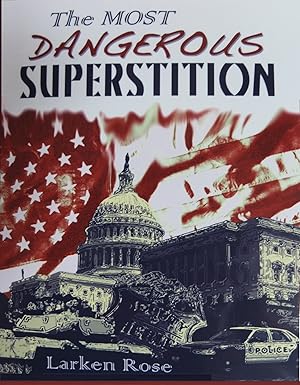
|
25A035 Reason vs. Dogma by Jim Davies, 9/2/2025
I've been re-reading Charles Freeman's The Closing of the Western Mind. Unless you're a glutton for details of ancient history it's not a light read, for Mr Freeman's knowledge of scholars and theologians of the period 300 BC to 500 AD is prodigious. His main theme is that before about 200 AD, scholarship was well on track to move civilization forward in a rational way, for the classical Greek philosophers (= lovers of knowledge!) had evolved a systematic mode of thought; theories were built on the basis of observation. That seems obvious to us today, for it's the core of the scientific method; but it came then as a sharp contrast to a world in which things poorly understood were superstitiously attributed to gods. Aristotle, Pythagoras, Plato et al kept their minds open - a key point, as Freeman presents it - but observed first and reasoned second. Only then did a theory emerge. That methodology, new at the time, produced huge progress, in every field; from mathematics to cosmology to human behavior, medicine and social organization. For example while some of them stuck with an Earth-centered universe and constructed highly complex models of star and planetary movements, others preferred a heliocentric one which made everything vastly simpler. They were over a thousand years ahead of their time. But they all kept open minds. Just the methodology of reason was fixed. What has all this to do with our theme in this Blog, that of a society without government? - just this: that methodology, the use of reason rather than superstition, is its vital prerequisite. Freeman laments the change in scholarship once Christianity took hold in the known world; that methodology of reason gave way to alleged revelation, and so to dogma. It's interesting to see how: by 300 AD Christianity had taken firm root from its beginnings in the Greek-speaking Eastern part of the Roman Empire and become its biggest single religion. As I summarized in Chapter 3 of my Which Church (if any)? a major deal was struck in 325 AD at Nicea, now Iznik in Turkey. Caesar Constantine urgently needed an uniting creed to hold the Empire together, and Christians formed the largest religious group, so he invited its bishops to get their house in order with a common set of beliefs, in return for State sponsorship and financing. They did: they formed a Creed, remarkable in that all denominations still hold to it 1700 years later, with almost zero change (though some have made additions.) Constantine kept his side of the bargain too; persecutions ended, and tax money flowed freely into church coffers - enabling rapid expansion of the religion throughout the Empire. That's not to say that doctrinal controversy ended, with the expulsion of Aryans and other heretics; Freeman shows it had been quite fierce before 325, and that dogfights continued later, for more than another century; eventually the church settled down to the Nicean formula but largely on the basis of authority, from the Bishop of Rome, the Empire's capital. The Caesar not infrequently intervened to bolster that authority! - sometimes without being a church member. Result: belief and scholarship changed into the practice and promotion of authoritarian dogma, even long after the Roman Empire had broken up. There it stayed, for 1,000 years; only Thomas Aquinas, of whom Freeman warmly approves, began a return to reason-based thinking in the 1200s. For that long, the Western mind was closed and material progress stultified. 
The ancient pantheon of gods is gone today, but at least one massive and deeply harmful superstition persists: that government is useful or necessary. The world worships at the altar of Statism. The scholarly habit of reason has, happily, returned; but the authority of State and Church (they often work together) combine to preserve that religion by diverting thinkers from applying reason to it. Yet that is what must be done, by anyone willing to consider the idea of a free society. Reason - intellectual honesty - leads to no other conclusion. That's the only prerequisite for engaging in a study of TOLFA for example. That doesn't mean an anarchist cannot also be a Christian; he or she can still value myths and superstitions for what they are, as (Freeman shows) the ancient philosophers certainly did; but where the rubber hits the road, reason must prevail. |
|
||||||||||||||||||||||||||||||||||||||||||










